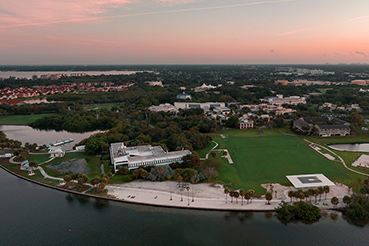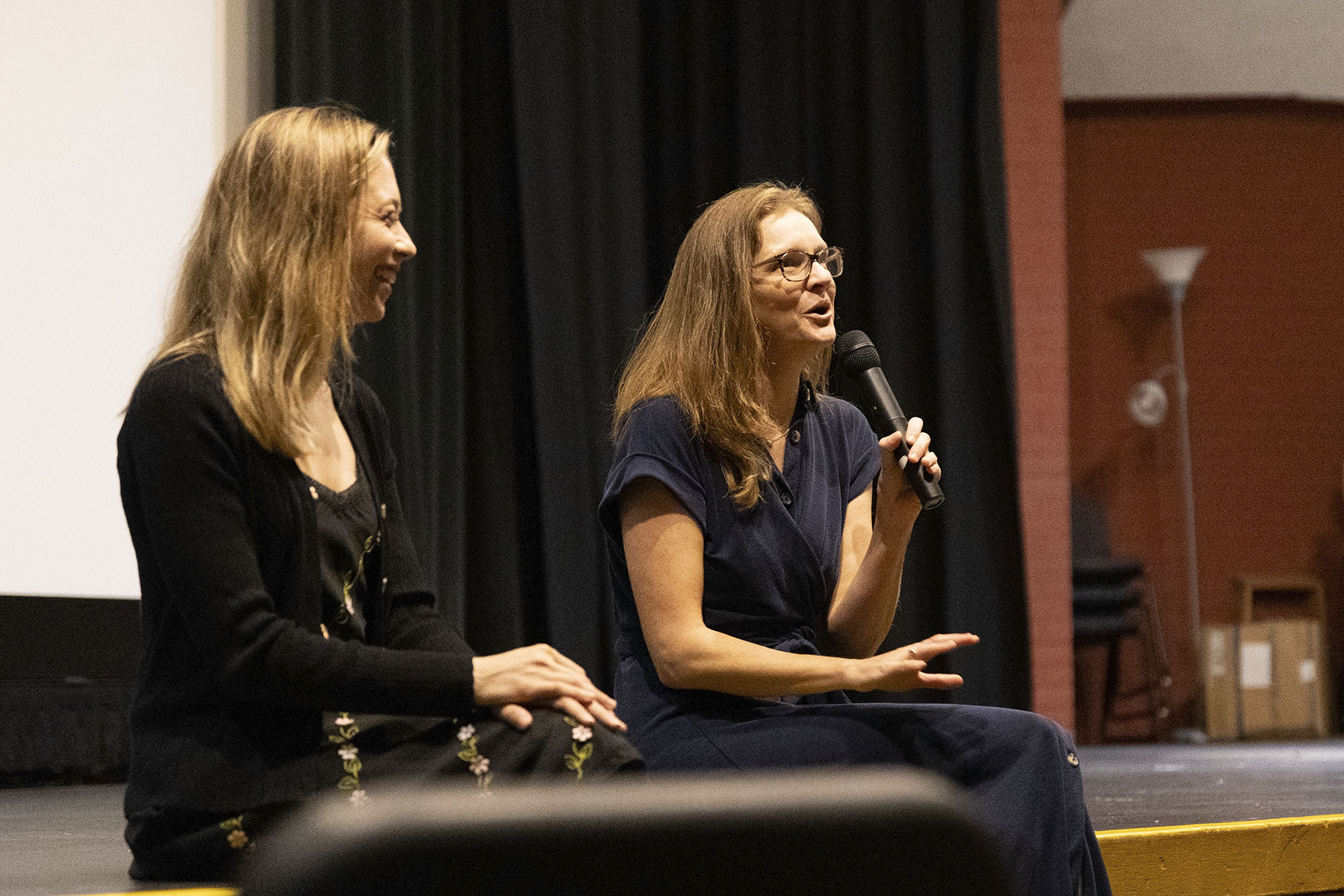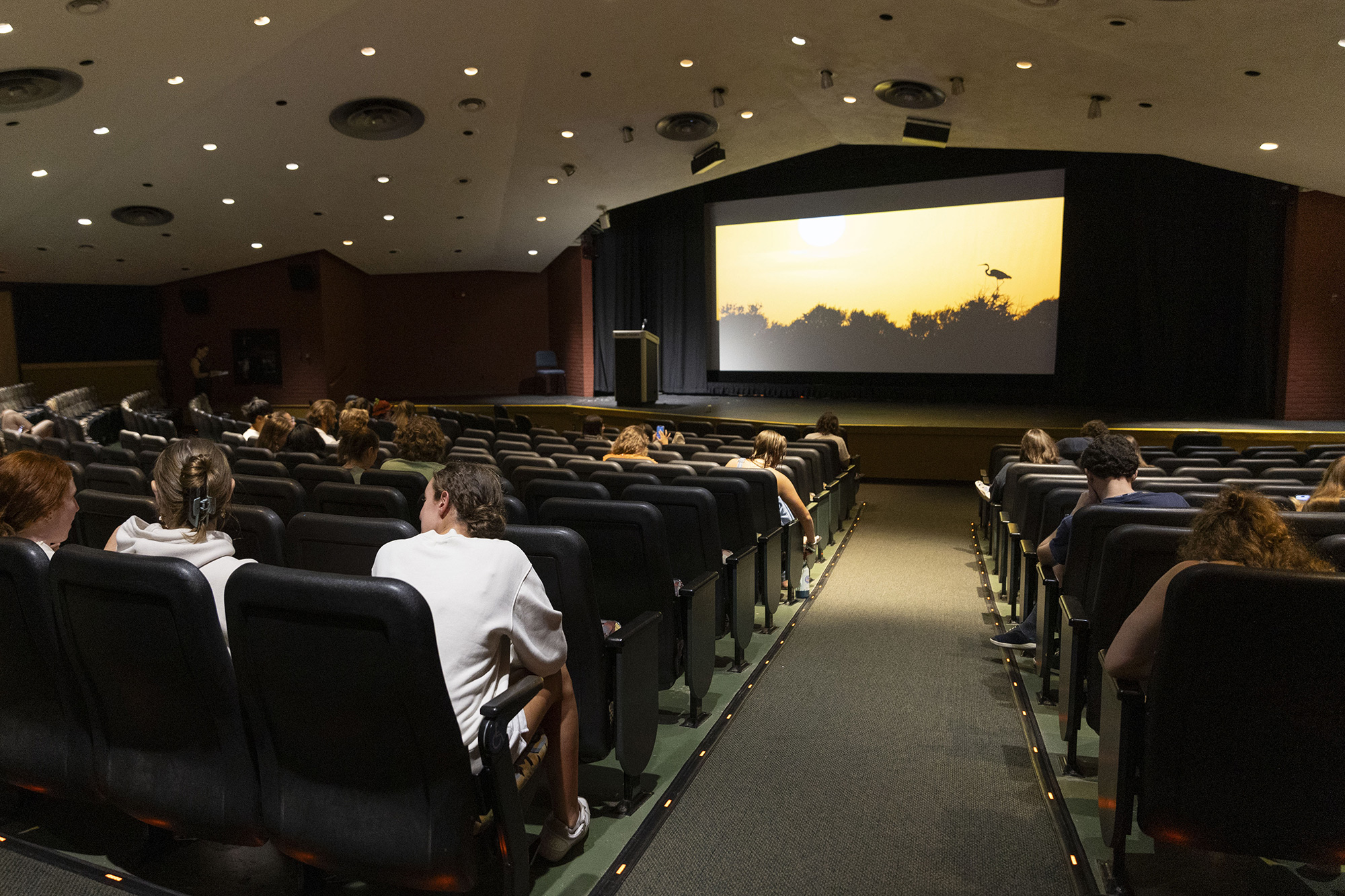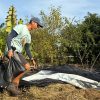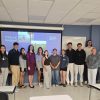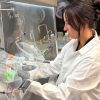“I’ve always been drawn to the power of film to inspire change,” said Wildpath’s KT Bryden, filmmaker of Dear Tampa Bay, at a screening at Eckerd College on Sept. 19.
Students gathered in the Dan and Mary Miller Auditorium at 7 p.m. to watch the 20-minute environmental documentary and ask questions of Bryden and Amanda Moore, senior director of the National Wildlife Federation’s Gulf Program and project lead on storytelling research.
“There’s a mentality that’s really prevalent in Tampa Bay that we’re somehow not as much at risk as, say, people in Louisiana. But that’s really not true,” Moore said. That’s why this film is so important to Tampa Bay citizens, she explained, so they can learn from what their neighbors across the Gulf have experienced.
Dear Tampa Bay shares personal stories from community leaders throughout the Gulf Coast, exploring how these communities have faced and are addressing the same climate impacts affecting Tampa Bay—showing actions that could be applied here—according to the NWF.
“Storytelling connects us on an emotional level and helps us see things from different perspectives,” Bryden said. “It’s one of the most powerful tools to inspire change and make complex issues more relatable and urgent.”
Introducing the event was Eckerd Animal Studies Instructor Amanda Hagood, Ph.D.; junior Carly Harshbarger reading Eckerd’s Land Acknowledgment; Eckerd Associate Professor of Environmental Studies Hilary Flower, Ph.D.; and Heritage Village Historic Museum Manager Monica Drake.
Flower discussed the film’s importance and the reality that climate change is not something that can be put off. She said sea level rise is creeping up, intensifying hurricanes—and as current Floridians, students should be aware of our area’s vulnerability.
Not long after the screening, the Tampa Bay area was impacted by two major hurricanes, Helene and Milton.
Prior to those two storms, the region hadn’t been directly hit by a hurricane since October 1921. In a bit of foreshadowing, Flower exclaimed at the film screening, “So you could say we’re overdue, or you could say, ‘See? They don’t hit Tampa Bay!’ Take your pick.”
The fact that this film features stories from real people living on the Gulf Coast is what brings the concept to a human scale, grabbing our attention, Flower explained.
Drake then took the stage to tell students she was conducting an oral history capture after the movie. As coastal citizens, students were given the option to complete a short questionnaire conveying their thoughts, feelings and concerns about climate change and sea level rise.
“For people in 50 years, what you say today will have resonance,” Drake said. “It’s really vitally important that we get your experience recorded for posterity.”
The film was shown, followed by a Q&A with Bryden and Moore.
Hagood kicked off the session by saying she was struck by the language of knowledge holders in the film—some having scientific knowledge, some knowing the history of the land or the current community. Hagood asked the filmmakers how they had landed on the handful of community members interviewed in the documentary.
Moore explained that they wanted to be inclusive and represent different types of knowledge holders—including Maya Burke, assistant director of the Tampa Bay Estuary Program, and Rosina Philippe, an elder of the Atakapa-Ishak/Chawasha Tribe who could speak about the history of the land and how it has changed with sea level rise.
Sophomore Emma Onder, an animal studies and marine science student from Pittsburgh, Pennsylvania, said visual storytelling is incredibly impactful. “You can listen to someone go on and on for hours about the environment,” she said, “but watching something visual, I think, in some ways is a lot more engaging. It kind of gives you a different perspective on it.”
Hagood asked the final question about what advice they had for college students interested in making a difference with environmental issues, starting at the community level.
“You can start wherever you are,” Bryden said. “You can do something on campus. You can come up with whatever you’re interested in and make that into a project.”
Further advice Bryden shared was to find local stories or issues they care about, build connections with the communities involved and keep creating.
“My biggest advice is to start small and remain persistent.”

